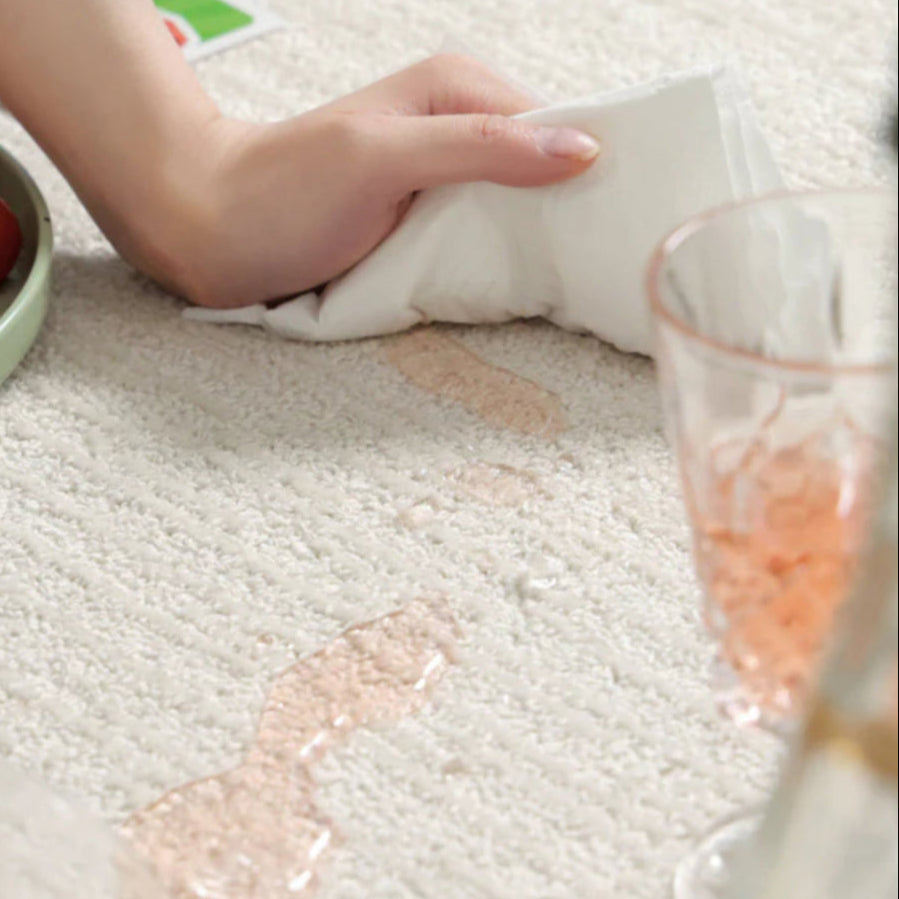Wool
What is Wool Carpet?
Wool carpet is made from natural fibers sourced from sheep's fleece. The fleece is sheared, cleaned, spun into yarn, and then woven or tufted into carpet backing to create the final product. Wool is prized for its luxurious feel, durability, and natural resilience. It has inherent stain and soil resistance due to the natural lanolin coating on the fibers, making it a durable and environmentally friendly choice.
In addition to its softness, wool is biodegradable, renewable, and excellent at regulating indoor humidity by absorbing and releasing moisture as needed. It's a premium material for carpets, often chosen for its timeless elegance and sustainable qualities. Are you considering wool carpets for your space? They’re an investment but definitely worth it for their many benefits.

Natural Insulation
Wool is a natural insulator, making it an excellent choice for flooring. Wool fibers have a unique structure with air pockets that trap heat, providing warmth in cold weather and coolness in hot weather. This natural insulating property helps regulate the temperature in a room, contributing to energy efficiency and comfort. Additionally, wool's ability to absorb and release moisture helps maintain a stable indoor environment. This combination of thermal and moisture regulation makes wool an effective and eco-friendly option for flooring, enhancing both the comfort and sustainability of your living space.

Eco-Friendly
Wool carpet is an eco-friendly choice for several reasons. Firstly, it is derived from sheep, a renewable resource that can be shorn annually, making it sustainable. Wool is also biodegradable, decomposing in the environment without releasing harmful substances. The production process of wool carpet involves fewer chemicals and less energy compared to synthetic fibers, resulting in a lower carbon footprint. Additionally, wool's natural insulating properties help regulate indoor temperatures, reducing the need for artificial heating and cooling and promoting energy efficiency. Its durability means wool carpets last longer, reducing the need for frequent replacements and conserving resources. Furthermore, wool naturally absorbs and neutralizes indoor air pollutants, contributing to healthier indoor air quality. These eco-friendly characteristics make wool carpet a sustainable and environmentally responsible choice for flooring.

Hypoallergenic
Wool carpet is considered hypoallergenic due to several key properties. The natural structure of wool fibers resists the accumulation of dust mites, pollen, and other allergens, making it less likely to trigger allergic reactions. Additionally, wool has the ability to absorb and neutralize indoor air pollutants such as formaldehyde, nitrogen dioxide, and sulfur dioxide, contributing to a healthier indoor environment. Wool's moisture-wicking properties help maintain a dry atmosphere, inhibiting the growth of mold and mildew, which are common sources of allergens. These features collectively make wool carpet a suitable choice for individuals with allergies or sensitivities, promoting better indoor air quality and overall health.

Noise Absorption
Wool carpet is effective at absorbing noise, which contributes to a quieter and more peaceful indoor environment. The dense and fibrous structure of wool naturally dampens sound by absorbing sound waves and reducing their transmission. This helps to minimize echoes and reverberations within a room, making spaces more comfortable and less noisy. Additionally, wool carpet can reduce the impact of footsteps and other sounds, further contributing to a quieter atmosphere. This noise absorption quality makes wool carpet an excellent choice for rooms where sound control is important, such as bedrooms, living rooms, and offices.

